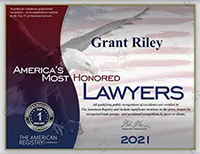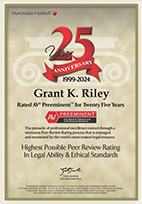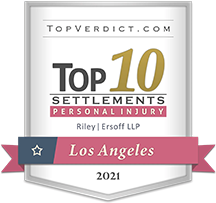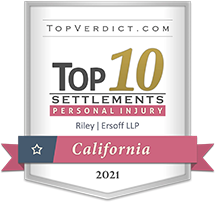Before 1978, many if not most homes in the United States and California had high quantities of lead-based paint. You should know about the dangers of lead ingestion and what your options are to protect your family from lead in your home in California, especially if you live in a house where lead exposure is possible due to the year it was constructed. The EPA’s Lead in Your Home: A Parent’s Reference Guide is a helpful tool to help you avoid lead poisoning even if you do not have children in your home.
Health Issues from Lead Exposure
Exposure to lead causes health issues. In children, the effects are generally related to developmental issues. For example, lead poisoning in children can cause speech and language problems, behavioral problems, and stunted growth.
In adults, even at low levels it can cause the following problems:
- Brain damage,
- Organ failure,
- Fertility trouble,
- High blood pressure,
- Mood and nerve disorders,
- Muscle and joint pain, and
- Gastrointestinal issues.
Higher levels can even cause seizures and death.
How Does Lead Poisoning Happen?
According to the EPA, lead poisoning happens primarily when lead paint chips or dust contaminated with lead paint particles are ingested. When surfaces painted with lead paint are disturbed, it can cause the old paint to break down. People—especially children—that touch those surfaces may then get the lead particles on their hands and in their noses and mouths. Children that are prone to putting things in their mouths might eat paint chips that have fallen off. Lead can also exist in the water supply if it was used in the pipes. Soil can also be contaminated by lead due to run-off from household projects or eroding exterior paint.
Your Landlord or Seller Is Required to Disclose Known Lead Hazards
For houses and residential structures built before 1978, landlords and sellers are required to make certain disclosures about lead and lead hazards in their contracts. They must:
- Give new tenants and buyer’s the EPA’s Protect Your Family from Lead in Your Home pamphlet;
- Notify tenants and buyers of known lead hazards;
- Receive a signature from tenants and buyers that they have received the above information;
- Maintain records and reports of lead inspections and hazards;
- Allow buyers to conduct a lead-based paint inspection if they so desire; and
- Include specific disclosure information in contracts of sale and leases regarding California paint disclosure laws.
Landlords and sellers are not, however, required to remove the lead paint. You should read the EPA’s pamphlet about how to protect your family from lead in your home before buying or renting a new place.
How Do I Avoid Lead Poisoning?
You do not necessarily need to remove the lead paint if you have an older home, however, it may be hard to avoid exposure to the lead even if you are careful with the paint or cover it. In addition, other precautions you can take to avoid ingesting lead include the following:
- Avoiding using the hot water faucet for culinary purposes if you have old plumbing, as the percentage of contamination increases with temperature;
- Ensuring that vinyl blinds are lead-free;
- Keeping older toys or painted items away from children;
- Not eating or drinking out of painted ceramics or pottery, or lead crystal;
- Keeping the home clean;
- Wiping away paint chips with a wet rag and dusting with a damp cloth; and
- Ensuring your family is eating healthy, nutritious meals.
If you really want to know whether your home is lead-free, you can have it tested by a certified inspector. They will tell you where there are lead hazards in your home and suggest ways to reduce your risk of lead poisoning.
What If I Want to Get Rid of the Lead-Based Paint in My Home?
The EPA has a Lead Renovation, Repair, and Painting Programthat applies to contractors. Lead-based paint removal must be done by a certified contractor. They will have to take proper precautions during the work and cleanup to prevent any contamination or improper disposal methods. Contractors in California must be certified by the EPA and the state. Contractors that are not certified or do not adhere to the federal and state precautions could face steep fines and penalties. If you are a tenant in a home where the landlord is having work done that disturbs lead paint, you have the right to vacate the home and find other lodging at the landlord’s expense.
If you do any projects that will disturb the lead paint, you should also take extra precautions to protect yourself and your family. This includes:
- Using respirators with HEPA filters,
- Wet-sanding rather than dry-sanding,
- Using cleaners made specifically for cleaning lead,
- Cleaning with vacuums with HEPA filters,
- Sealing off the work area with plastic and duct tape,
- Covering surfaces you cannot move, and
- Changing clothes before exiting the work area.
It is best to hire a professional to handle any work that involves disturbing lead-based paint.
What Do I Do If I Get Lead Poisoning?
If you or your family suffered lead poisoning, you must first seek medical assistance. Unfortunately, early stages of lead poisoning may be subtle and difficult to detect as the symptoms are common:
- Headache,
- Confusion,
- Sluggishness,
- Stomach Pain, and
- Vomiting.
If you suspect lead poisoning, you should get a lead test, follow your doctor’s instructions for treatment and avoid further exposure.
If your landlord or seller did not make the proper disclosures or a contractor did not perform work properly, and you suffered lead poisoning, you may be entitled to financial compensation. You can recover for losses associated with your lead poisoning, such as:
- Past and future medical treatments for the lead-related condition,
- Treatment-related expenses such as prescription,
- Loss of personal property, and
- Pain and suffering.
If you are wondering whether you have a claim against someone for lead poisoning, you should call a lead poisoning lawyer to discuss your case.
Riley | Ersoff LLP & Shakhnis Specialize in Lead Poisoning Cases in California
Riley | Ersoff LLP is the only firm in California that focuses primarily on lead poisoning-related legal claims. We have recovered millions of dollars in damages for our clients. Please feel free to take a look at some of the results and settlements we have obtained. If you or your family member have suffered from lead poisoning, please contact us today for a consultation.
The post How to Protect Your Family from Lead in Your Home in California appeared first on Riley | Ersoff LLP.
















